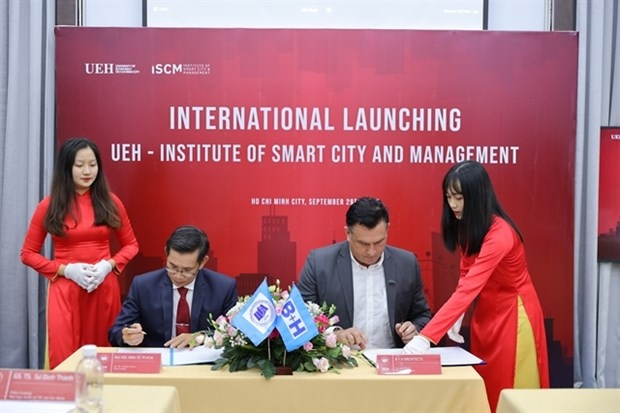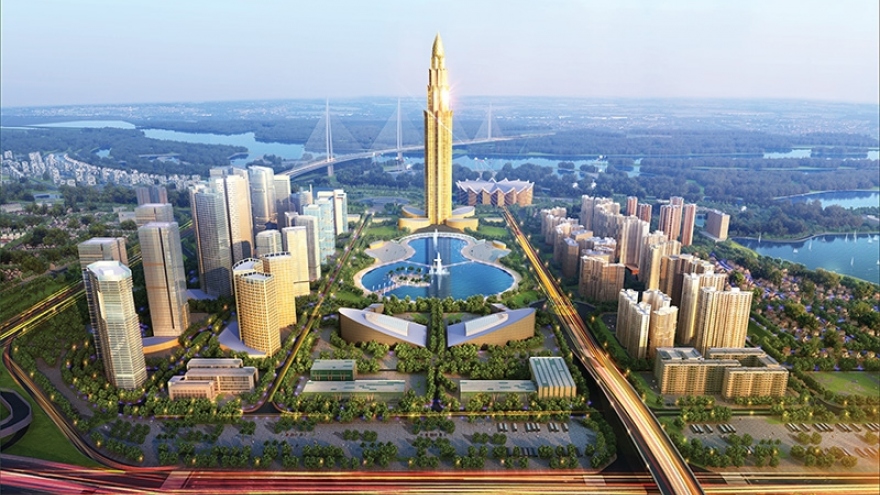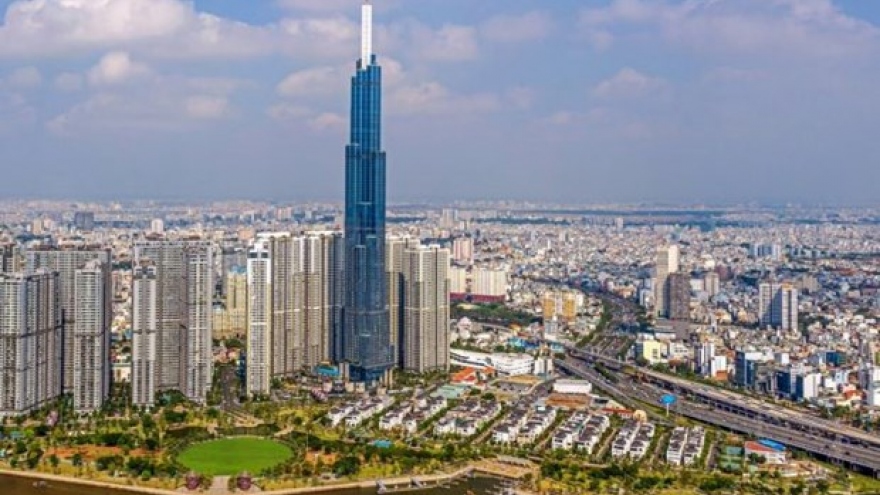University sets up Institute of Smart Cities and Management
The Ho Chi Minh City University of Economics earlier this week launched the Institute of Smart Cities and Management (ISCM), whose mission will be to mobilise international cooperation in addressing urban issues globally.

The launch was attended by officials from economics, urban studies, transport, and environment universities and organisations from Asia, Europe and the US.
Su Dinh Thanh, Rector of the HCM City University of Economics, said the institute aims to become a smart city training and research institute that uses technology and critical thinking as powerful tools to solve urban problems of the future.
“I believe that ISCM and our partners will contribute to improving the quality of education and urban life through three activities — integrated education, research and development, and solving practical problems through projects.”
Dr Trinh Tu Anh, director of the new institute, said it aims to develop education integrated with research and actual projects, connecting universities and other stakeholders to inspire students’ creativity in various fields through the use of technology to find solutions for urban problems.
Smart cities are a major topic of urban research and development in many countries, she said.
The institute offers five areas of expertise, Smart Management, Smart Planning, Smart Design, Smart Traffic, and Integrated Applications.
The Institute of Smart Cities and Management was established in May to undertake a range of academic activities by bringing together more than 40 leading experts and professors and leaders from universities, companies, public and non-governmental organisations from around the world.
At the inaugural event, titled ‘Shaping the Unknown Future Toward Smart City,’ the institute also gave away awards to four teams for the first international City of the Future: Smart Design for the Post-Pandemic World competition.
The post-pandemic-themed contest attracted 400 students from universities around the world who showcased their ideas for future post-pandemic urban areas.
There was an online international summer camp for students from Vietnam, South Korea and Myanmar who created a forum for the city to find solutions to succour the groups most affected by the pandemic.
An exhibition and workshop titled Smart Future City showcased outstanding products made by the institute such as R2S platform, Smart Travel app and a VR product.
The event also featured four seminars and a talk show on smart city that mainly considered solutions to urban problems in Vietnam, an overview of the future from an architectural and urban planning perspective, how to apply technology and AI for long-term education, and how to ensure traffic safety.
Delegates also discussed innovative approaches to clean agriculture using smart testing machines, converting education with online applications and VR technology and building urban areas centres on universities.


